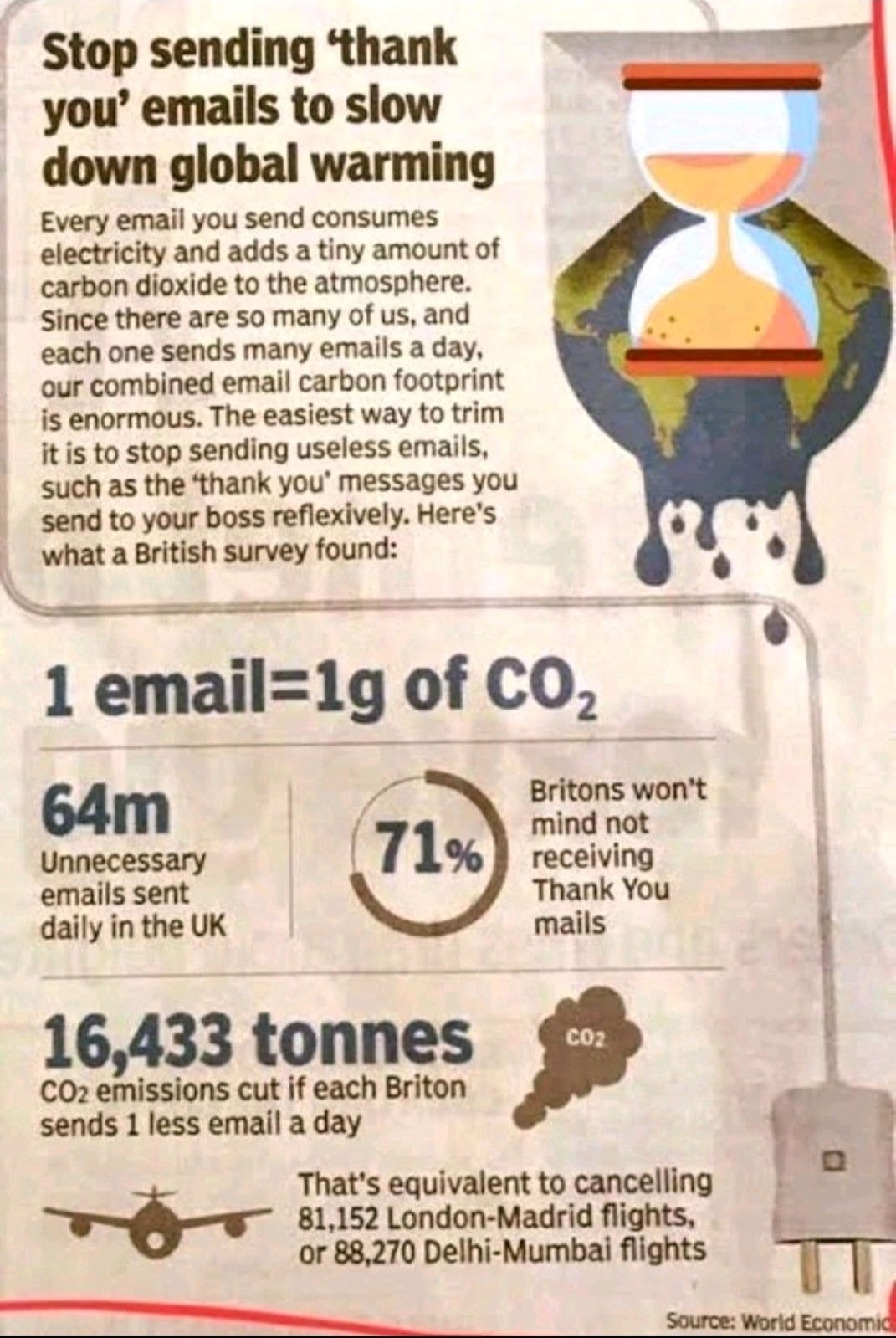I trust this message finds you in good health and high spirits. Today, I’d like to address an important issue that concerns us all—our collective environmental impact through email communication. Every email we send consumes electricity and contributes to carbon dioxide emissions, albeit in small quantities. Given the sheer volume of emails we exchange daily, it’s crucial that we take steps to reduce our carbon footprint.
A recent British survey has revealed some eye-opening statistics:
Each email sent generates approximately 1 gram of CO₂.
Shockingly, there are around 64 million unnecessary emails sent daily in the UK.
The encouraging news is that 71% of Britons are open to receiving fewer “Thank You” emails.
What’s truly remarkable is the potential impact of a small change in our email habits. If each Briton were to send just one less email per day, we could collectively reduce carbon emissions by a staggering 16,433 tonnes. To put this into perspective, this reduction is equivalent to canceling 81,152 London-Madrid flights or 88,270 Delhi-Mumbai flights.
At EDUFORCE, we’ve always been committed to safety and sustainability, and now we have an opportunity to lead by example in reducing our environmental impact. To support this cause, I propose that we reconsider sending reflexive “Thank You” emails, especially within our internal communications.
Instead, let’s cultivate a culture of appreciation within our organization. We can express our gratitude during our regular interactions, team meetings, or even by giving a shoutout in our internal communication channels. This change not only helps the environment but also promotes a more efficient and streamlined communication process.
We encourage your active participation and welcome your suggestions on how we can implement this initiative effectively within our organization. Together, we can make a significant difference in reducing our carbon footprint and contributing to a more sustainable future.
Thank you for your attention to this crucial matter, and let’s work together to create a greener and more environmentally responsible workplace.

